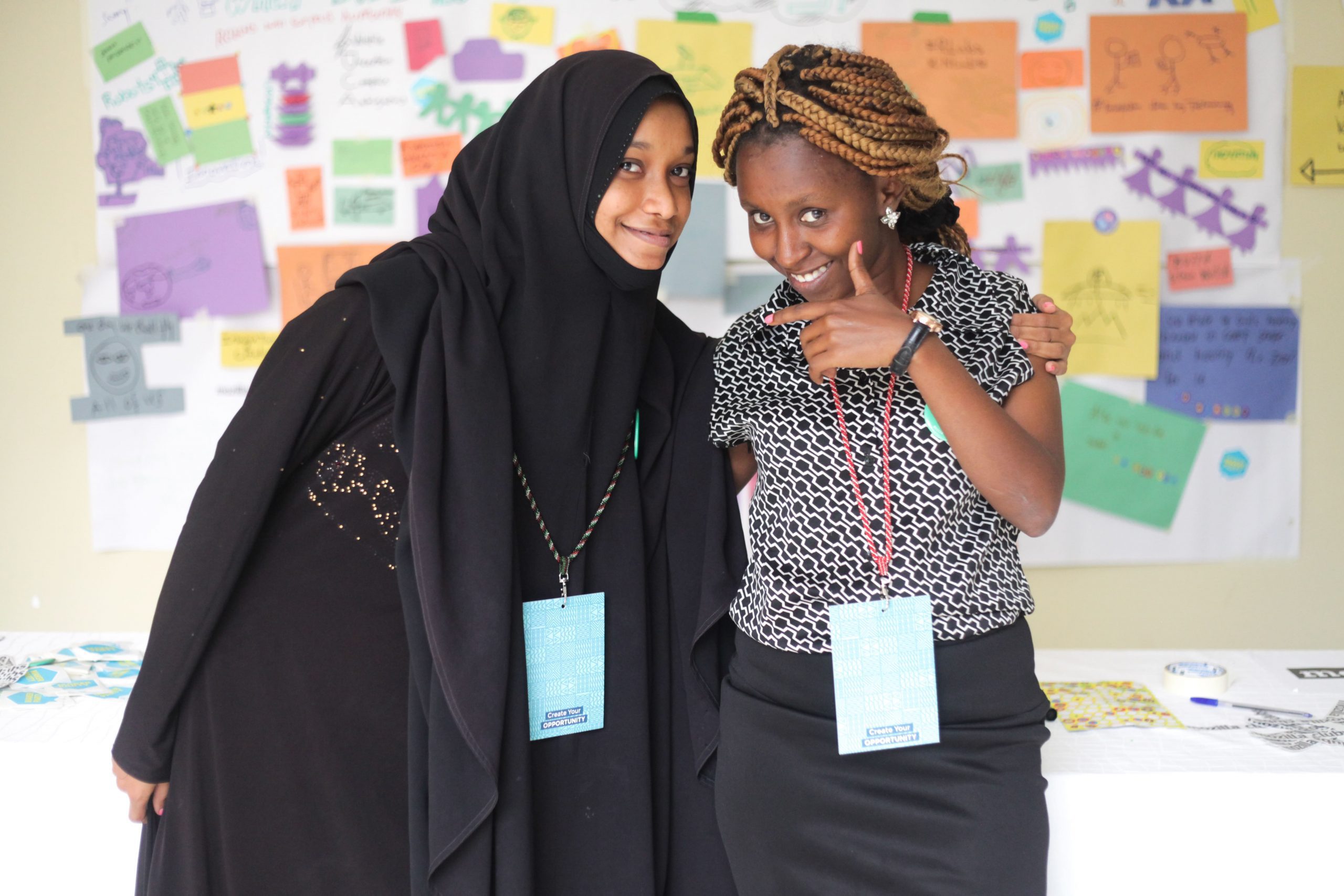World Youth Skills Day: Enhancing the skills of women and girls in ICT
Aisha Abdulkadir and Ruth Kaveke, Kenya
It’s World Youth Skills Day! We are celebrating by highlighting the phenomenal work of two young women who are responding to social challenges in their community by bridging the gender divide in STEM.
We are pleased to feature two #DOTYouth Aisha Abdulkadir and Ruth Kaveke, founders of Pwani Teknowgalz in Kenya, who are doing their part to get more women involved in science and technology through coding and safe spaces, even during COVID-19 outbreak.

Empowering young girls in Kenya to innovate with STEM
Studying ICT at the Technical University of Mombasa, Aisha Abdulkadir and Ruth Kaveke made up 50% of the program’s female population. At graduation, they decided to do something about that.
Aisha and Ruth are the founders of Pwani Teknowgalz, a social enterprise empowering young Kenyan women to innovate in the STEM fields. They are also freelance web developers and lovers of ICT, who realize many women in Kenya are not fortunate enough to be given similar opportunities.
Aisha grew up in a community where it is commonly said that women cannot code. Adding to that was the belief that women should stay at home, regardless of their education. Aisha says it was to the point where companies wanted to hire a female web developer, but could not find applicants.
How Pwani Teknowgalz is empowering girls in ICT
Pwani Teknowgalz offers web development training, workshops, and mentorship for girls in secondary school, university, and college. Workshops are affordably priced, and 10% of proceeds go towards teaching underprivileged girls.
The first goal of the workshops is to get young girls familiar with ICT and its possibilities. No two people understand the importance of this better than Aisha and Ruth. Ruth fell in love with computer programming in high school, and her teacher encouraged her to pursue it in university. Aisha learned how to use the computer in the first year of her university degree. She quickly mastered the basics and discovered her passion for web programming.
Sparking girls’ passions is just the first step. Next, participants use their new ICT skills to develop social projects that are sustainable and innovative.
Pwani Teknowgalz reaches most of its university and college audience through Swahilipot Hub, an ICT space in Mombasa. Aisha and Ruth also run after school workshops in high school computer labs.
Aisha and Ruth make training a family affair. Parents are invited when girls showcase their web or mobile application. Ruth says they become inspired by the girls’ work and want their daughters to go into STEM. “There is a lot of money and jobs in this field, especially for girls,” she says. “We have parents who support their children and bring them to Swahilipot. They really encourage them to take part in our program.”
Role models for girls in ICT
Going through university, both Aisha and Ruth were mentored by men. It is only recently they have been able to find professional mentors who are women.
Ruth found her mentors through TechWomen Kenya, a project connecting women in STEM with mentors and exchange opportunities. One of her mentors, Sandra, is an IT professional who sends her job and funding opportunities. Ruth has, in turn, started mentoring two young ladies. She says female mentorship is beneficial because you can talk about coding and STEM, but also more personal challenges.
Aisha serves as a mentor for other women in Pwani Teknowgalz. “I hope that if girls see me as a professional web developer, it will encourage them to take opportunities that are available in ICT,” she says.
There are still many steps needed to get girls in Sub-Saharan Africa and around the world into the ICT field. Aisha believes this can happen through physical and digital tech spaces that will allow women to interact, network, and brainstorm innovative ideas.
Pwani Teknowgalz continues to host events and training at Swahilipot, including design sprints sponsored by Mozilla. They also want to build relationships with different clients and companies — places participants could find employment in the future.
Tags
Are you our next Community Leader, Digital Champion, or Social Innovator? Learn more about how to join #DOTYouth
Join #DOTYouthShare this Post
More ARTICLES
Read more like this.